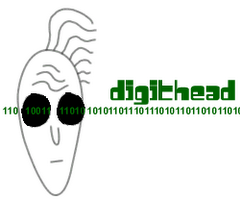I attended a talk by Stuart Kauffman about systems biology, complexity, information theory, and related topics. It inspired the following crackpot theory / misunderstanding of Kauffman's ideas about the nature of the relationship between theory and reality.
Let's take physics.
- N = Newton
- E = Einstein
- Q = Quantum physics
Now, let's imagine an ill-defined concept that I'll call resolution (as in screen resolution). R(N) is a measure of the explanitory power or detail of the theory N (Newtonian physics).
R(N) < R(E) < R(Q)
Right? So is there such a thing as R(reality)? Or is the resolution of reality infinite? It's certainly true that theories are only useful when R(theory) << R(system being described). What use is a theory of Universe sized complexity?
I'm willing to guess is that there is a finite (although large) R(reality). And that there's some sort of Heisenberg/Goedel-like limit to how close any theory can come to accurately describing reality, regardless of how high the R of the theory is. More and more advanced theories asymptotically approach this limit.









 R Bloggers
R Bloggers
No comments:
Post a Comment